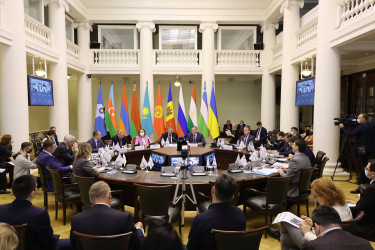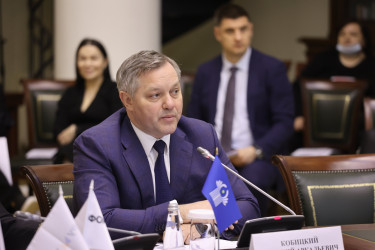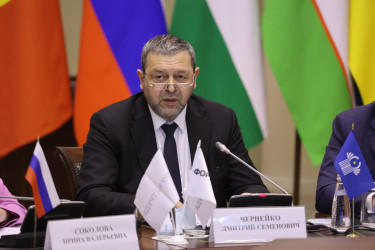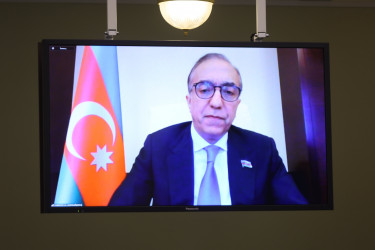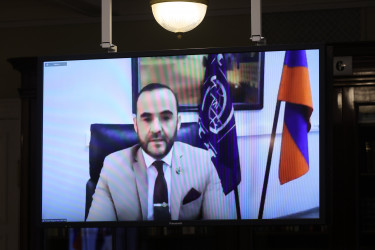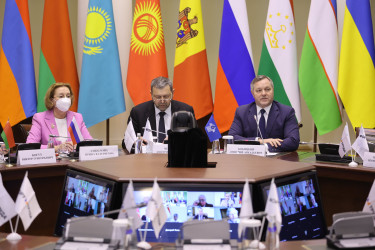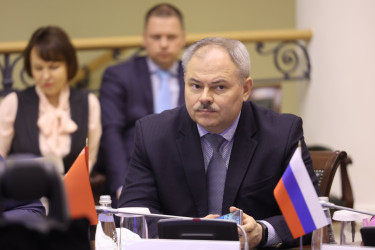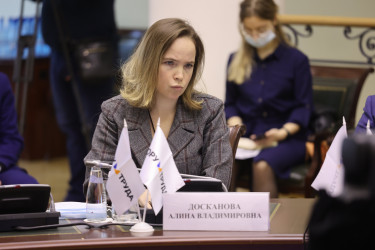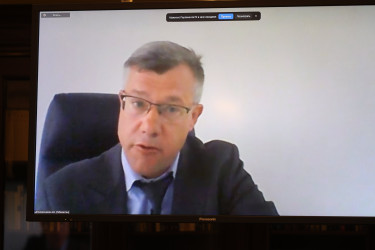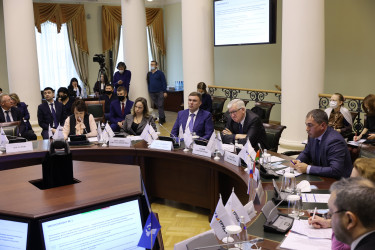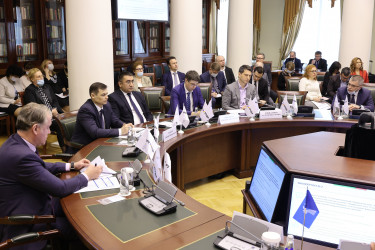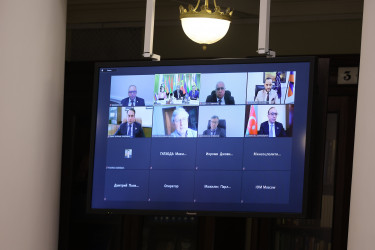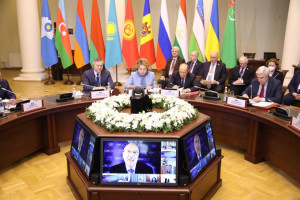Particularities of Regulation of Migration Processes During Pandemic Discussed in Tavricheskiy Palace
21 April 2021
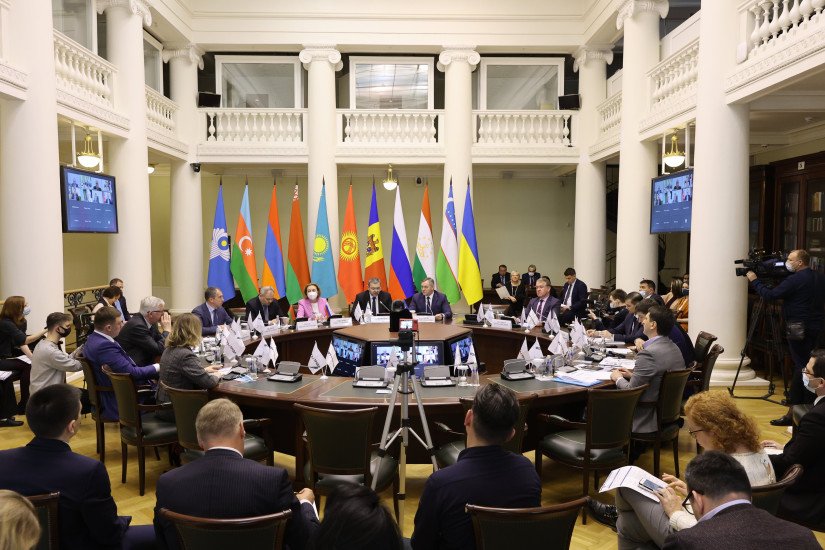
On 19-23 April 2021, the Fifth St. Petersburg International Labor Forum is taking place at various venues. As part of the event, a roundtable "Features of the Regulation of Migration Processes During the COVID-19 Pandemic in the CIS Member Nations" took place in the Tavricheskiy Palace.
Secretary General of the IPA CIS Council Dmitriy Kobitskiy addressed the audience with a welcoming speech. He stated that the issue of effective regulation of migration processes was one of the most relevant for the CIS and noted the need for close cooperation in this area between states.
Moderator of the meeting, Chair of the Saint-Petersburg Committee for Labour and Employment Dmitry Cherneyko, noted that every extraordinary situation, including the COVID-19 pandemic, brought not only disadvantages, but also generated the need to make quick decisions with a great impact on the future.
Chair of the IPA CIS Permanent Commission on Social Policy and Human Rights, member of the Milli Mejlis Committee on Legal Policy and State Building, member of the Milli Mejlis Committee on Defense, Security and Combating Corruption Nizami Safarov noted that the current situation caused problems not only for migrants and receiving countries, but also for countries of origin.
Director of the Bureau of the International Organization for Migration in Moscow Abdusattor Esoev noted that the topic under discussion was extremely relevant to find the ways to overcome the pandemic and its consequences for the host society and migrants.
Deputy Director of the EEC Department for Labor Migration and Social Protection Oleg Artamonov pointed out that the pandemic gave a new impetus to deepening integration, but at the same time demanded the introduction of new effective mechanisms.
Director for International Affairs, Deputy Director General of the Agency for the Development of Professional Skills (WorldSkills Russia) Alina Doskanova noted network training for citizens of the countries of origin for targeted employment among the ways to improve the quality of labor migration.
Director of the Representative Office of the Peoples' Friendship University of Russia in the Republic of Uzbekistan Andrey Kolesnikov also touched upon the problem of professional training of migrants, focusing on their language training as one of the ways to minimize the vulnerability of newcomers.
The roundtable also featured reports by experts in the field of organizational and legal support for migrant workers, representatives of government bodies, business and public organizations.


